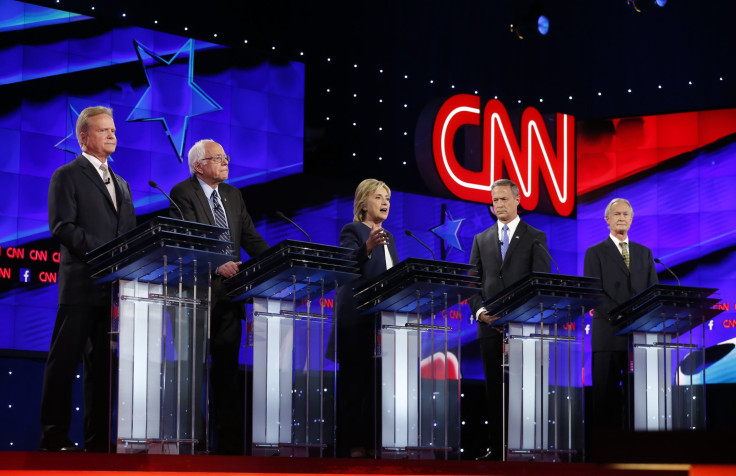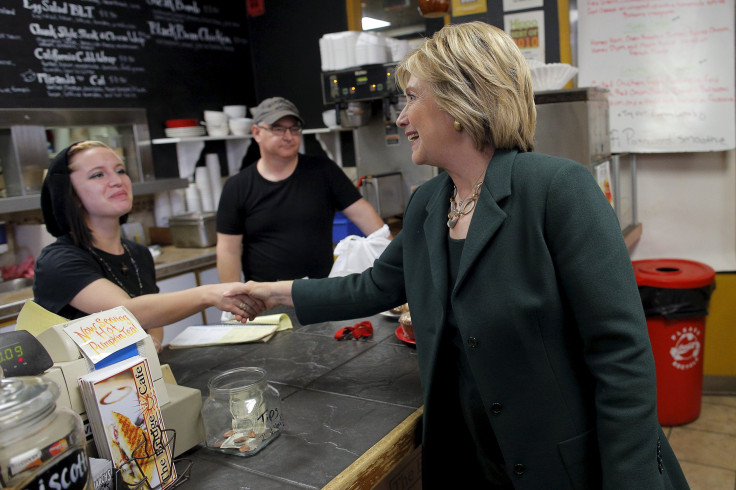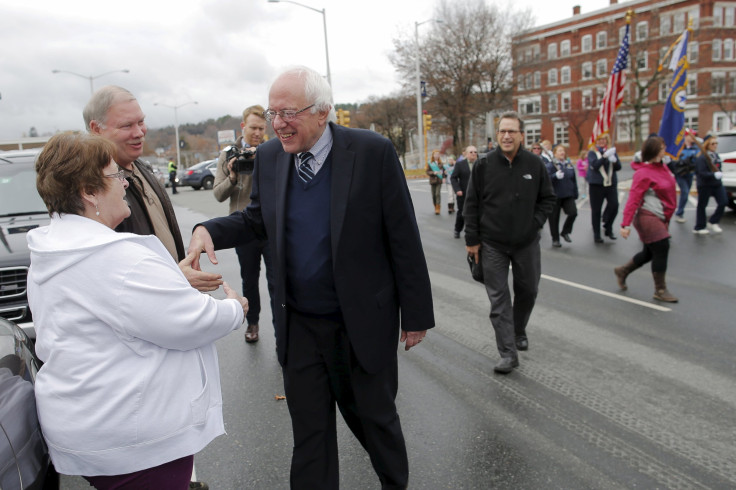Election 2016 Polls: Where Do The Democratic Candidates Stand Before The Debate?

Ahead of Saturday’s second Democratic presidential debate, here’s a look at where the narrowed-down group of candidates stands. The debate in Des Moines, Iowa, will focus on the economy, giving candidates the opportunity to discuss income inequality and wages. Viewers will be able to submit their own questions for the candidates by using Twitter during the debate.
Hillary Clinton

The former first lady, U.S. senator from New York and U.S. secretary of state leads the group of Democratic presidential candidates in the most recent polls going into Saturday night’s debate with support from 52 percent of respondents. A CBS/New York Times poll found that 62 percent of Democratic primary voters think Clinton could bring about real change in Washington, D.C., while 35 percent think she will not be able to do so. Bringing about change was the most important characteristic for primary voters when asked about candidates, followed by trustworthiness and strong leadership.
After Vice President Joe Biden declared he would not seek the presidency, Clinton’s poll numbers increased over her closest challenger, Vermont Sen. Bernie Sanders.
Bernie Sanders

Sanders comes in second in the polls with 33 percent support. Only 13 percent of primary voters polled by CBS/New York Times think Sanders is influenced by special interests "a lot" and 51 percent of primary voters think Sanders would be able to bring about change in Washington.
Overall, 43 percent of Democratic voters said they would support Clinton as their nominee while Sanders received 35 percent support. Sixty-two percent of potential voters said Sanders is likely to say what he believes, while 52 percent said Clinton says what she believes.
Martin O'Malley

The former Maryland governor trails both Clinton and Sanders with only 5 percent support. Both O’Malley and Sanders still have the potential to gain voters, with half of those polled saying it was still too soon for them to decide who they would cast their vote for.
The CBS/New York Times poll was conducted Nov. 6-10 and surveyed almost 1,500 people. After Saturday’s debate, the next Democratic debate will take place Dec. 19 in Manchester, New Hampshire.
© Copyright IBTimes 2025. All rights reserved.






















